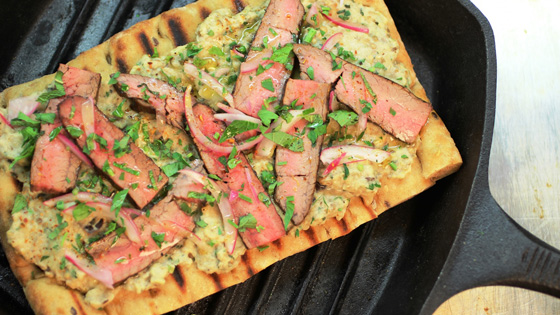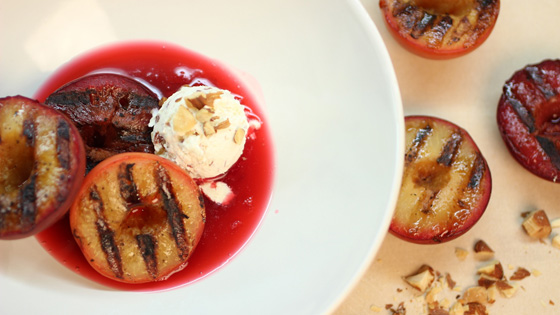After a long winter, we have now finally welcomed in the summer months. And with that comes the barbeque season.
Whether you are attending a backyard barbeque party, hosting one of your own or just looking for new ways to spice up your dinners, grilling can be a delicious way to enjoy some of your favourite foods.
But is it safe to grill our foods? This is a common question registered dietitians often get from patients around the summer months.
Megan Morrison and Stephanie Gladman, registered dietitians at Princess Margaret Cancer Centre, have a few "how to" tips for safe grilling and information from the American Institute for Cancer Research (AICR) on the cancer risks associated with grilling. You can also watch this
Safe Grilling Tips for Healthy Barbecuing video for more details.
What is the link between grilling and cancer risk?
There is not enough scientific evidence to say that grilling meat explicitly increases risk for cancers. However, scientists are aware that there are two potential cancer-causing compounds – HCAs (heterocyclic amines) and PAHs (polycyclic aromatic hydrocarbons) – which can form when cooking meats, poultry and fish at high temperatures, such as during barbequing. Smoking or charring meat can also be a contributor in the development of PAHs. Carcinogens can cause changes in DNA that may lead to cancer.
What is the good news?
If grilling is done right, then it can be a healthy option to prepare your food.
Practice these safe grilling tips next time you are planning a backyard barbeque:
Spice it up! Marinate your meat, poultry and fish first.
Why?: Studies have shown that marinating your food for at least 30 minutes can decrease the formation of these cancer-causing compounds.
Tip: Add an antioxidant rich acid to your marinade mix such as orange juice, fresh lemon or lime juice. Compounds in these items may block HCAs from developing.
Try this lemon garlic marinade in this
Steak and Eggplant Flatbread with Mint and Yogurt recipe.

Precook your meat, poultry or fish.
Why?: This will lessen the amount of time your food spends under the flame therefore reducing the risk for carcinogens to form.
Tip: Once your food has been partially precooked in the microwave, oven or stove, place it directly on the grill to avoid bacteria from developing. Always practice safe food handling.
Choose leaner cuts of meat, poultry and fish.
Why?: This will reduce the chemicals that develop when smoke is created by burning fat.
Tip: Trim visible fat off to reduce flame flare-ups and choose smaller pieces of meat. Cook away from the flame, and flip frequently to avoid charring or burning. If any, remove any leftover charring off food before eating.
For a lean protein choice, impress family and friends with
Grilled Fish Wrapped in Grape Leaves with Cherry Tomatoes.
- Get creative! Try a meatless barbeque.
Why?: Research shows that less HCAs and PAHs form when these foods are burned by a flame.
Tip: Try grilling your veggies like cauliflower and broccoli, a sweet potato or even a fruit kabob for dessert. AICR suggests that having more plant-based foods in your diet are associated with lower cancer risk.
Enjoy
Grilled Plums with Maple Almond Mascarpone for a summer time dessert favourite.

For more recipes and tips, check out the ELLICSR Kitchen
website and
YouTube channel.
The ELLICSR Kitchen program is designed to support people touched by cancer by giving them the skills and information needed to manage their diet.
Join Stephanie Gladman and Geremy Capone, Wellness Chef, on the third Thursday of every month for dynamic healthy cooking demonstrations that feature simple recipes and tasty samples in the ELLICSR: Health, Wellness & Cancer Survivorship Centre Toronto General Hospital, Basement level, B PMB 130. No registration is needed.
To speak to a registered dietitian, ask a member of your healthcare team for a referral.
Recipes provided by Stephanie Gladman, RD in the ELLICSR Kitchen
